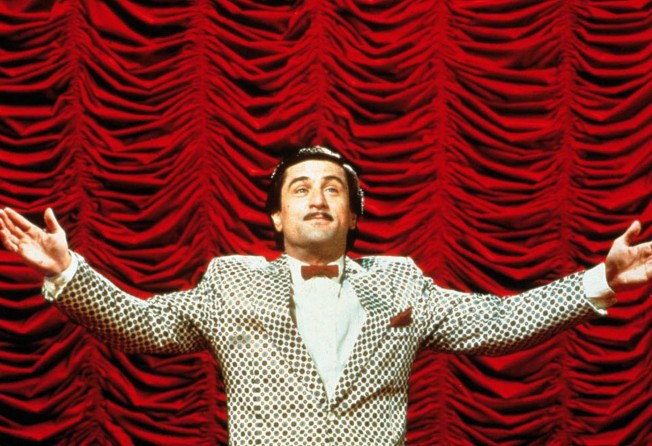
Rewind film: The King of Comedy, directed by Martin Scorsese (1983)

The King of Comedy
Robert De Niro, Jerry Lewis, Sandra Bernhard
Director: Martin Scorsese

The King of Comedy almost finished off Scorsese's career.
De Niro plays Rupert Pupkin, a mum's-basement dweller obsessed with chat show host Jerry Langford (Jerry Lewis basically playing himself). Pupkin knows performing his stand-up act on Langford's show would make him a star. Sandra Bernhard, in a brilliant, manic debut, plays Masha, Langford's lunatic stalker.
After their delusions are crushed, they team up to kidnap him.
Now recognised as one of Scorsese's best, contemporary reviews were bizarre. Roger Ebert called it "one of the most arid, painful, wounded movies I've ever seen … Scorsese doesn't want laughs in this movie". Pauline Kael of The New Yorker called King of Comedy "perverse … a mistimed, empty movie".
Was Scorsese just ahead of his time? The commentary on celebrity culture and lust for fame is all too recognisable in the reality TV age. And after The Office, Curb Your Enthusiasm and so on, it's perhaps easier to laugh at the squirming embarrassment of Pupkin and Masha's insane behaviour.
Yet the film is full of laughs: Pupkin being "interviewed" between life-size cutouts of Liza Minnelli and Langford, only to be interrupted by his mother telling him to be quiet down there; Masha eyeing her prey on the street, the chase shot horror-style as Langford runs for safety; when studio executives won't believe the kidnapped Langford is who he says he is; Pupkin holds ransom-demand cue cards upside down; and Masha "seduces" the duct-taped Langford by the light of 100 candles.
Even the Scorsese steadicam shot is played for comic effect, following security marching Pupkin out of Langford's office. Similar shots follow Jake La Motta and Henry Hill into the ring and Copacabana in Raging Bull and Goodfellas (1990) respectively - perhaps here Scorsese is suggesting Pupkin belongs outside fame's corridors of power.
There are parallels with Taxi Driver (1976) too: where Travis Bickle talks to the mirror, Pupkin has conversations with stars in his basement. Where Bickle takes his date to a porn theatre, Pupkin takes his to Langford's mansion - uninvited. Where Bickle ends up as a vigilante anti-hero, Pupkin is an outsider anti-celebrity.
Fox dumped the movie. "I realised at that point the 1970s were over for me, that the directors, the ones with personal voices, had lost," Scorsese told Peter Biskind, author of Easy Riders, Raging Bulls, his 1998 book about the period.